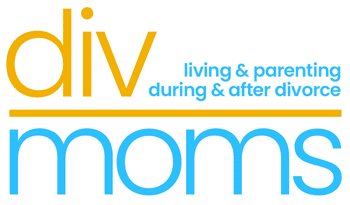Juggling life as a single mom in today’s tech-savvy world means keeping up with the daily grind while also staying one step ahead in the digital realm.
Let’s face it: Our online life is a jungle, which is why a robust password management is your secret weapon to navigate it like a pro.
Ready to become a digital ninja? Take a step into the world of password management and lock down your online safety! Here, we crack the code on passwords for a safer digital life.
What you'll find here
Toggle- Why you should have a password manager
- The benefits of using a password manager
- Choosing the right manager for your secret codes
- Implementing password management
- Make a strong password for your password manager
- A tool to help you stay organized & safer online
- But don’t manage everything
- Go on – do it now!
- It can be for the kids, too
Why you should have a password manager
Every online account of yours should have a really strong, totally unique password. In this world where databases are regularly hacked, and personal information is too often shared online, that’s pretty much a requirement of modern life.
For single moms, safeguarding online accounts goes beyond basic security — it is also about confidently stepping into a new phase of life. Using a password manager helps you re-establish control over your digital footprint, which is especially critical if you’re moving on from a shared life with a partner.
First off, it’s essential to replace any shared passwords and secure your individual accounts like email, banking, and social media with new, strong credentials.
As a divorced mom, you need to make sure that you, and only you, have access to your important accounts (assuming, of course, you have that legal right), and that your data will stay private — especially if you are separated from or divorcing someone who may choose to cause problems.
So what can you do to be as safe as possible? Well, there are many things that will help, but one thing that is in your control right now is to create unique passwords for every site that you visit — and make sure they’re stronger than the Incredible Hulk on a bad day.

The benefits of using a password manager
Password managers offer numerous advantages over traditional methods like memory or written notes:
- Convenience: Remember just one master password while the manager stores the rest.
- Enhanced security: They use advanced encryption, far more secure than unencrypted documents or physical notes.
- Unique passwords: Generate and manage strong, complex passwords for each account.
- Automatic login: Enjoy quick and secure access to sites with auto-fill features.
- Accessibility: Access your passwords from any device with your master password.
- Regular updates: Get reminders to change passwords regularly for ongoing security.
- Emergency access: Set up emergency contacts to access your passwords if needed.
- Phishing protection: Auto-fill features help protect against entering details on malicious sites.
Choosing the right manager for your secret codes
When selecting a password manager, consider these key factors:
Cross-platform compatibility: Choose a manager that works seamlessly across all your devices, like your phone and laptop. Popular options include LastPass, Dashlane, and 1Password.
Family-friendly features: Some managers allow secure password sharing, ideal for giving your kids access to certain accounts without revealing the actual passwords. This feature is particularly useful for maintaining privacy and ensuring your ex-partner cannot access these shared accounts.
In-browser vs. standalone password managers: In-browser managers, like those built into Chrome or Firefox, are convenient, but often less feature-rich than standalone apps. Standalone managers typically offer more robust security features and better cross-platform functionality.

Implementing password management
The transition to using a password manager involves several steps:
- Audit existing passwords: Review all your current accounts and identify shared or weak passwords.
- Update critical accounts first: Prioritize your most important accounts for immediate updates.
- Gradual transition: Move other accounts to your password manager over time, ensuring each has a unique, strong password.
- Regular checks: Periodically review your password manager for any security updates or password change reminders.
- Don’t save it in your browser: Never let your browser or operating system save your password manager credentials. That makes you much more vulnerable.
Make a strong password for your password manager
A password manager needs a long and secure password. Instead of trying to remember something really difficult, you could try creating a password with clues that mean something just to you, that would be all but impossible to guess (and that your former spouse won’t know).
For example, let’s say you went to Kennedy Space Center in Florida for your 10th birthday. Your next door neighbor’s cat at the first apartment you owned was named Fluffo. The coworker you did not like at your job at XYZ was named Jerry. Your old zip code or locker combo or best childhood friend’s phone number from years ago. Four instances of your favorite keyboard symbol.
Clues could be: 10th party location – next door pet (caps) – XYZ jerk first name – CHS locker – 3x fave symbol
In that case, you could end up with something long like kennedyFLUFFOjerry291244%%%. With clues and repetition, it’s a password you can remember, and nobody else is likely to guess.
A tool to help you stay organized & safer online
So let’s say you make up some random string of numbers, letters and punctuation. Cool. But how can you ever possibly remember a password like sD&F^D7msd$h943?
It doesn’t matter how, because you don’t have to! You’re going to outsource that job, because you don’t have time for that.
A great way to keep your login info long, complicated, and hard to break is by using a well-known and secure password manager, like LastPass, Dashlane or 1Password. They will help you create random keyboard mashings, and then keep track of them for you.
That way, you can easily use your computer, phone and/or tablet to access all of your favorite sites (plus ones that aren’t so fun, like the one reminding you of your credit card balance, and the browser tab with the video workouts that you keep meaning to do… one day).
Tip: Do NOT let your browser save your user name or password for your password manager. That will compromise your security, which is the point of all of this. Read more about that just below.

But don’t manage everything
There are a few “keys to the kingdom” that you won’t want to put in a password manager.
We’re talking about your most important passwords — the ones that are at the core of your life: your primary contact, your money, and the key to the other keys.
That means you need to super-protect your main email inbox, access to your bank account(s), and the login information for your password manager itself.
This is more important than ever after divorce, because you aren’t likely to have the kind of secondary access a spouse could offer in case of a problem — nor their help to cope with identity theft or a security breach.
Your email inbox needs to be super safe because, in addition to your normal messages, that is where things like password resets, account access warnings, and some two-factor identification challenges are sent.
Basically, if one of your other accounts is accessed, you should have it set up so you get a notification. In that case, you will control the only way (theoretically) that someone can update or change an account holder.
Tip: Do NOT let your browser save your user name or password for your key accounts, either.

Go on – do it now!
When you next log in to your various online accounts to confirm or update your new life details — your email address, mailing address, phone number, and/or possibly your name — take that time to create new and strong passwords, to check your contact info, and to add that shiny new access information to your password manager.
While you’re at it, it might be a good idea set up two-factor authentication (2FA) for an extra level of security on your most important accounts. (2FA is the thing where they have to text you, email you, or have you enter a code from another app to verify your identity before you can access an account.)
This will help you guard against identity theft, regular theft, invasion of privacy, and whatever other kinds of mayhem criminals get into these digital days.
2FA isn’t available for everything, which is fine, because you won’t want to deal with the extra bother for stuff like your fast food reward program (even if you rely on it for free fries every Friday) or your printer warranty details. Find out more about the whys and hows of 2FA here.
It can be for the kids, too
If your littles are old enough to need their own password repository, all of the companies we listed above offer special family plans, so you can all use one secure account. Those services will let you maintain separate (hidden) passwords if you want, or you can have full control over your kids’ logins.
With luck, your children will never have to know the stress of having to remember a password that uses similar-looking letters and the kinds of odd punctuation you never otherwise see in the real world.
NOW SEE THIS: How can you avoid some common Craigslist & PayPal scams?
















